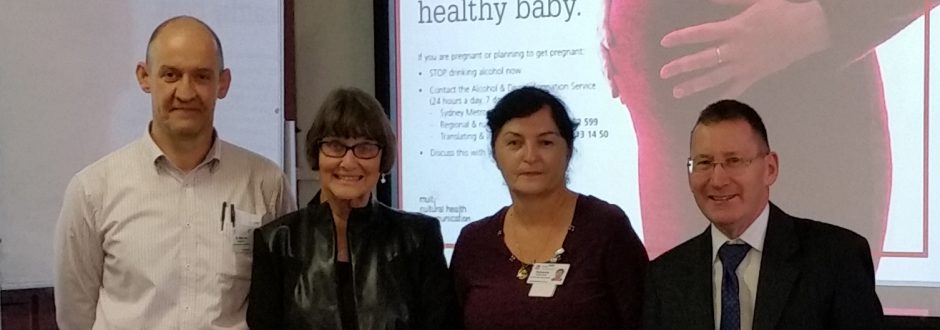Serving the community is a significant part of the life of religious sisters, but it’s not often you meet a sister who works as a public servant for government.
Earlier this month, Good Samaritan Sister Catherine Norman retired after 25 years of public service with the New South Wales Government’s Hunter New England Area Health Service.
During those 25 years Catherine has held a number of management and senior leadership positions in the area of multicultural health. Most recently, she served as Director of the Hunter New England Multicultural Health Service, where she worked with some 40 staff based at Newcastle and over 300 spread across the Hunter, New England and Lower Mid North Coast regions, to help people from diverse cultural and linguistic backgrounds access public health services.
“Looking back it’s been a very interesting journey because life has changed quite considerably in those 25 years,” Catherine told The Good Oil.
“We went from being a single service to a double service, taking up an enormous area, and the face of multiculturalism is much more evident now than it was then… Also, what has changed are the internal workings of health.”
While Catherine admits the work has been “a hard slog a lot of the time”, she has loved it and recognises that the public health system is much more culturally competent than it was 25 years ago.
Dr Murray Webber, a Staff Specialist and Clinical Lead with Hunter New England’s Refugee Health Program, said working “alongside Catherine and her wonderful multicultural health unit” for the past 13 years had been “a great privilege”.
“Catherine has lived and breathed multicultural health throughout her 25-year career. She is a passionate supporter of public health services for people from disadvantaged backgrounds, including culturally and linguistically diverse groups,” he said.
“Catherine has developed and expanded a long list of programs during her time as the manager within the frameworks of the Health Care Interpreter Service, Multicultural Health Liaison Officers and Refugee Health Programs.”
For Murray, Catherine’s most significant contribution has been her “key role” in advocating for, and establishing, the Hunter New England Refugee Health Program, which began in late 2006.
“I can’t go past Catherine’s contribution to the health and well-being of newly-arrived refugees settling in Hunter New England Local Health District. Our Refugee Health Program is an outstanding example of the public health service responding to the needs of the community in participation with key partners.”
In Murray’s address at one of Catherine’s farewell gatherings earlier this month, he said, “Although many people have contributed to the success of our Refugee Health Program, I have no doubt that it has been Catherine’s leadership that has been the most significant contribution of all”.
As Catherine reflects on her achievements in multicultural health over the past 25 years, she nominates “three really distinctive programs” she has helped to establish and develop – and the Refugee Health Program is one of them.
“I think we have the best on-arrival service for refugees across the State. We’re about the only refugee health service that has both general practitioners and paediatricians as well as nurses, and we follow people for six months, so we make sure that children have the necessary immunisations,” she said.
The other two initiatives that Catherine is particularly proud of are the Mothers, Obstetrics and Multicultural Support (MOMS) program, which provides support for women from culturally and linguistically diverse (CALD) backgrounds during pregnancy and after childbirth, and the Community Drug Action Team (CDAT), which, according to Catherine, is “the only multicultural community drug action team across the State”.
As Catherine finishes her role with Hunter New England Health it’s the people she has worked with that she’ll miss the most.
“It’s a very interesting blend and mix, a very pluralistic group,” she said. “I feel as if I’ve been very blessed.”
“You’ve got to have a real commitment in this job. It’s not a 9 to 5 thing. You’ve got to have people who can see where the problems are, and want to go out and they want to do something about it, and that’s what the staff is like,” she explained.
While Catherine has retired as a public servant, she certainly has no intention of retiring from her involvement in, and support of, culturally and linguistically diverse groups, especially refugees.
She will continue in her role as Co-ordinator of the Good Samaritan Sisters’ Social Response – Refugees, Asylum Seekers and Human Trafficking.
“I have commitments in the local parish and I have commitments in the local community, and I’m on the board of housing, so it’s not as if I’m likely to be sitting around doing nothing,” she said.
